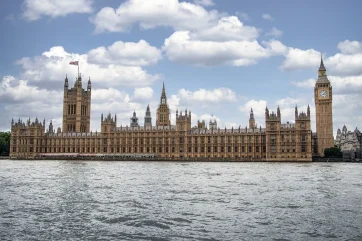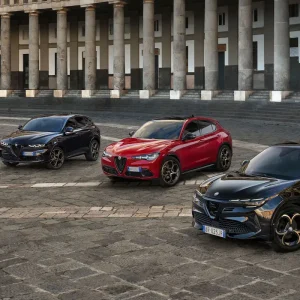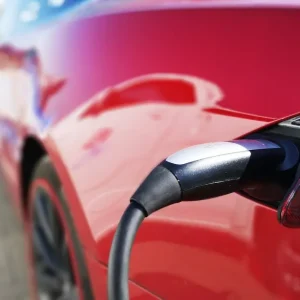
Continuing company car tax rate incentives for EVs beyond 2028 have been announced by the UK Government in today’s Autumn Budget speech.
Chancellor of the Exchequer Rachel Reeves said that the Government wanted to support the take-up of EVs, and also announced that the differential between full EVs and other vehicles in the first-year rate of VED would be increased from April 2025.
Currently, EVs incur a BIK company car tax rate of 2%, and this is scheduled to increase to 3% in 2025-26, 4% in 2026-27, and 5% in 2027-28.
The government has now said this rate will increase to 7% in 2028-29, and 9% in 2029-30.
The rate for cars with tailpipe CO2 emissions of 1-50g/km, which mostly covers plug-in hybrids, will rise to 18% in 2028-29 and 19% in 2029-30. These rates are currently between 2% and 14%, and will be between 5% and 17% in 2027-28, depending on cars’ EV battery ranges.
All other BIK bands will see a 1% increase in 2028-29 and 2029-30, including an increase in the maximum rate, from 37% to 39%.
As for first-year VED, this will be set at £10 for EVs and other zero-emission vehicles from 1 April 2025 until 2029-30.
Other rates will increase for 2025-26 – to £110 for cars emitting 1-50g/km of CO2, and to £130 for cars emitting 51-75g/km, while rates for cars emitting 76g/km or more will be doubled.
The government has also announced that it will consider increasing the VED Expensive Car Supplement threshold for zero-emission cars at a future fiscal event.
Other measures announced in the Budget include an extra £500 million for pothole repairs via local roads maintenance funding, and more than £200 million for EV charging infrastructure.
More than £2 billion was also announced to support the automotive sector, in relation to zero-emission vehicle manufacturing.
Reaction
Commenting on the Budget, Association of Fleet Professionals (AFP) chair Paul Hollick said: “The big news in the Budget is the announcement on company car tax rates until 2030, something on which we have been campaigning for some time. With the massive swing towards electric cars seen in the fleet sector in recent years, there was perhaps an expectation that we would start to see benefit in kind begin to creep upwards and I these figures are probably at the lower end of our expectations.
“This new certainty around tax will, in our opinion, maintain the ongoing electrification of car fleets, especially in establishing a marked differential compared to hybrids.
“Similarly, the increased differential in first year tax rates for electric cars is to be welcomed although, being a one-off cost, will have a much more limited impact.”
Hollick said the other major Budget element for fleets was the ongoing freeze in fuel duty.
He said: “Petrol and diesel prices are historically quite low but this remains good news for fleets who are working hard to keep their spending under control.
“With these two measures, it does seem like a potentially promising start for this government and its policy towards fleets. However, there remains quite a long list of issues that we would like to see resolved in the short-medium term – ranging from 4.25t electric van derogation through to ongoing difficulties surrounding the ZEV mandate. “Conversations covering at least some of these problems are underway and we await their outcome with interest.”
BVRLA chief executive Gerry Keaney said: “This was a complex budget at a difficult time. The increase to employers’ national insurance will have a substantial impact on businesses and their customers. The full scale of its impact will only be seen in time.
“For our sector, the Chancellor has left many challenges unresolved. As penalties to stay in ICE vehicles ramp up in line with the ZEV mandate, more needs to be done. The barriers relating to the rental sector, charging infrastructure, consumer education and the used EV market, all need close attention.
“The Budget did bring some green shoots of positivity, suggesting that the government is taking the UK’s transition to cleaner, greener vehicles seriously. The confirmation that the fair EV company car tax regime will be continued at least to 2030 is a positive step, supporting a vital contributor to the transition and a bright spot of success up to now.”
Novuna Vehicle Solutions managing director Jon Lawes said: “Today’s Budget delivered unexpected relief for drivers and businesses, with fuel duty remaining frozen for another year.
“Although the £2 billion funding for the automotive sector to support the transition to electric vehicles coupled with a commitment to move the needle on green hydrogen are welcome developments on the roadmap to zero emission mobility, incentives for personal use drivers beyond fleets to make the switch needed to go much further.”
SOGO sales director Lee O’Connell said: “We welcome the Chancellor’s budget and the commitment to maintaining incentives for electric vehicles, particularly in company car tax until 2028.
“Increasing the differential for fully electric vehicles within VED is a step in the right direction.
“However, the question remains: do these measures go far enough to drive the level of investment necessary to meet our net-zero targets? We must consider if more robust action is required to support a rapid and sustainable transition to a net zero.”





